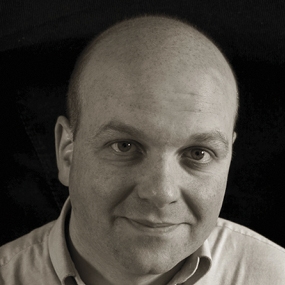Why train to be an examiner?

Dr Jason Walker is a consultant anaesthetist working in the district general hospital Ysbyty Gwynedd in Wales and he discusses what led him to want to become a FRCA examiner.
More than 1,700 of our fellows and members selflessly contribute their time, energy, and skills enthusiastically to the work of the College, through roles ranging from examiners and committee members, to ACSA leads and AAC Assessors.
I’m originally from Waterford. and trained in Cork and Wales. I came to Bangor as part of my registrar rotation and I’ve been there ever since. Prior to joining the Primary FRCA examiners, I had no examiner experience at all. I’ve had plenty of experience of the exams themselves – let’s just say that my collection of souvenir pencils is much larger than my collection of certificates.
I was encouraged to become an examiner by two senior examiners who talked me into it. I had previously toyed with the notion of applying, but genuinely didn’t think I’d meet the standard. However, they pointed out that my background in training (I had served as a College tutor and as Deputy Programme Director for the Welsh Specialty Training Committee), made me a strong candidate.
I think there’s enormous value in working with other examiners. Whether you’re writing questions or examining, you’re taking clinically relevant topics and working through them with other anaesthetists at a very high level of detail. It’s an excellent way to keep up to date, but it’s also very reassuring. Most of the time, the things that you feel are important are things that your fellow examiners also feel are essential. It’s very encouraging to realise that there are some topics that everyone struggles with – it’s not just you!
The qualities needed to become a FRCA examiner are varied. You don’t need to be an expert – in fact, you’re probably a better examiner if you’re not. I happen to have an interest in statistics, but even my fellow-examiners consider that to be a bit nerdy. A background in training is very important; people who have worked as educational supervisors and College tutors understand the curriculum and of what to expect of a trainee at a given stage of training. It’s also important to be a good communicator, and especially important to be a good listener. At the centre of this whole process is a candidate who is relying on you to give them their best chance. Finally, an examiner must be able to commit to the time required. When we are not delivering exams in a pandemic, Primary examiners will usually spend two weeks at the College every year or 10 days spread over three weeks, which is not an insignificant amount of time. The days are hard work, but, having said that, they’re very rewarding and tend to fly by.
I’ve been fortunate enough to be involved with the Exams Review Group, which is an exercise the College regularly undertakes to ensure that the exams are fit for purpose. As statistics lead, I’m working with the Examinations Department to ensure that the statistics surrounding the exams (for example the processes by which we set the pass mark), are robust and fair. A lot of this work involves statistical techniques that I was previously unfamiliar with, so the College has ensured that I’ve had training in the various techniques and metrics required. It’s been fascinating, and it’s been interesting getting to work with the Examinations Department. The cheerful efficiency with which they get through the sheer volume of work administrating and running the various exams is amazing. I would recommend anyone with the right credentials gives it ago. I have found being a FRCA examiner extremely rewarding.
Find more information about becoming a FRCA examiner here.
